#dzungaria
Explore tagged Tumblr posts
Text
I'm sorry but you will never see me endorsing any "critique" of the CPC's counterterrorism efforts in Xinjiang that doesn't put front and center the US's instrumentalization of Islamic terror groups for its geopolitical goals, and you won't see me endorse any """colonization""" narratives of Xinjiang that don't acknowledge the fundamentally different histories of Dzungaria and the Tarim Basin or the role that Uyghurs played, along with Hui Chinese, in ethnically cleansing Dzungaria of Dzungars and other Mongol minorities in the Qing dynasty. Chinese presence in the Tarim Basin predates the first written attestations of the "Dokuz Oghuz", before the first Uyghur Khaganate even emerged, by several centuries. Come the fuck on.
404 notes
·
View notes
Text












Kalmykia Europe's only Buddhist Republic
Kalmykia is an autonomous republic located in the steppes of western Russia formed while Lenin was the leader of the USSR. The republic was created for the national-self determination of the Kalmyk people, Europe's only indigenous Buddhist population.
Kalmyks are mainly descendants of Oirats from Dzungaria who migrated through the steppes and first inhabited the Volga region in western Russia, but as a group they've also mixed with ethnic Russian peasants, Don Cossacks, North Caucasian people, and Kazakhs.
Due to internal strife among different clans in Kalmykia, many Kalmyks sought refugee in the neighbouring Don Cossack lands. Eventually most of those Kalmyks became a part of the Don Cossack Army, and developed into their own sub-ethnic group known as the Buzava or Don Kalmyks. The Buzava adopted much of Don Cossack culture, and intermixture between both groups was common; however, they were able to preserve a unique identity due to maintaining their own language and religion though most also spoke Russian. In the flag of the Don Cossacks the first blue vertical stripe represents the Kalmyks, with its origins in a law formulated during the existence of the temporal Don Republic stating: "Three nationalities have lived on the Don land since ancient times and constitute the indigenous citizens of the Don region - the Don Cossacks, Kalmyks and Russian peasants. Their national colours were: the Don Cossacks - blue, cornflower blue, the Kalmyks - yellow and the Russians - scarlet. "
Photo source: "Kalmykia, Chess, and Buddha" - Tomas van Houtryve
#russia#buddhism#europe#kalmyk#russian#kalmyks#kalmykia#buddhist#oriats#mongols#european#western russia#buzava#don cossacks#don kalmyks
59 notes
·
View notes
Text
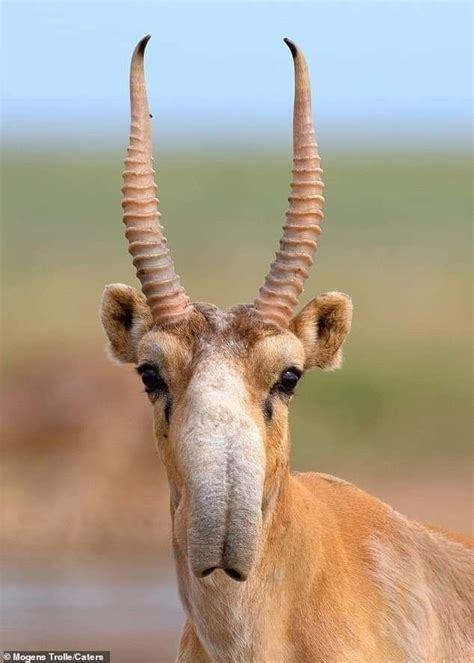
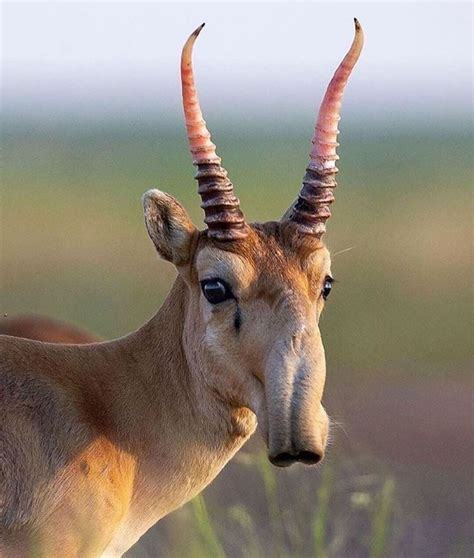




Saiga Antelope
The saiga antelope, or saiga, is a species of antelope which during antiquity inhabited a vast area of the Eurasian steppe, spanning the foothills of the Carpathian Mountains in the northwest and Caucasus in the southwest into Mongolia in the northeast and Dzungaria in the southeast. Wikipedia
11 notes
·
View notes
Text
20240126 ESQUIREfine Cover Story | Yu Shi: Dexterity to Grow Anywhere
cover story | Yu Shi
After 《封神第一部 Creation of the Gods I》 premiered, the topics of discussion surrounding Yu Shi was fixated on his role and his journey of striving. Despite how he himself always tries his best to give new refreshing and enriching answers, his main focus has never changed. Yu Shi understood what the prodding was attempting to get out from him. Facing these scrutiny and deciphering from people, his consciousness as a public figure were gradually formed.
With the double-edged sword of fame in his hands, what comes with it is a naturality of not having any prior training. Yu Shi remains to have a kind of simple passion, an almost clumsy way of baring himself.
actor | utter innocence

Sprawled on the floor - enamored with the destiny and life of each individual body
First it was the shooshing sound of the wind. The point of view expanded from the back of a horse, tanned hands pulling at the reins, the ground a chaos of needlegrass. A large herd of sheep are hastened into a circle, a cacophony of bleating calls. The skies are transiting between two shades of blue, the setting sun burning, its sides stained with a dream-like smoked purple. A small bright moon hung at the side.
This was a snippet of the vlog Yu Shi recorded when he was filming in Altay. The sun set behind the mountains. He rode his horse, shepherding the sheep as he headed to a local shepherd's home for a meal. This clip was filmed in a very simple way, but the images were authentic, presenting a clean, vivid view of the plains, the culture and vibes of the hardworking, hospitable locals, like a paradise. During the peak period of 《封神第一部 Creation of the Gods I》 screening, this four minute-long clip of Altay went viral, even raising a traveling trend amongst his fans. "Yes, I knew about the many people who went traveling because of it," Yu Shi laughs.
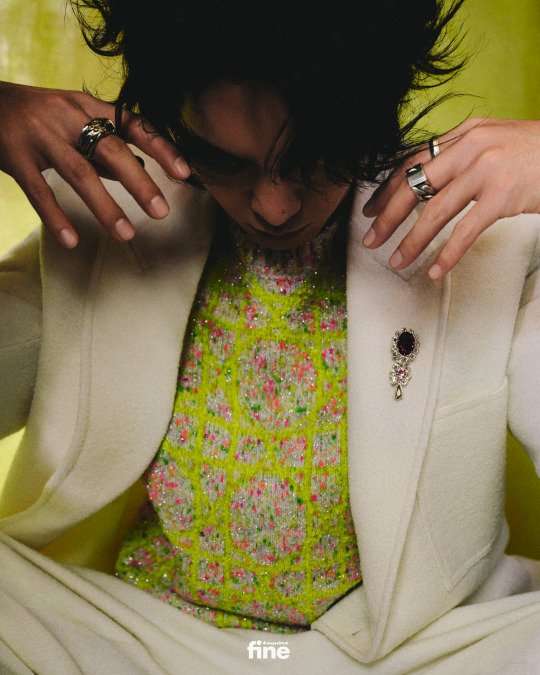
In 《我的阿勒泰 My Altay》, Yu Shi plays a Kazakh youth, his name was Bakhtibek. "Bakhti" means blissful, "bek" is a common suffix used in Kazakh male names, there's no specific meaning to it. In the drama he's known as "Batay (Ba Tai), like a nickname. In the first half of last year, he was like a real Kazakh shepherd, riding horses, shepherding and laboring, blending into local life.
In our conversation, Yu Shi gave a long precursor into describing the details of nomadic life, "shepherding requires a lot of brainwork, to find all ways and means to let the livestock be well fed, the nomads themselves also have to replenish their energy, to eat and to have enough, to keep things simple to bring around. So the locals have accumulated a rich knowledge of production and labor as well as some traditional characteristics."
In the example of the opening of the vlog, he was greeting the nomads in Kazakh honorifics to the elder generation. The other party's reply was slightly shorter, it was the way the elder generation would reply the younger generation. "Kazakh language is a little more complex, there's also gender and seniority differences in greetings. Getting 'free meals' is a common rule. The human density in Altay region is low and the standards of living of the nomads were tough for nomads in the past, often suffering from starvation when shepherding, when they finally pass by a house and enter it for drinks and meals, the head of the house would always host them passionately. The saying goes, Kazakhs are called the community with no beggars, because of how hospitable they are, even if there's only just a piece of naan left, a little bit of tea leaves, they would share half of them with their guests."

"Our filming takes place mainly at the Habahe County and Baihaba. They are considered mature attractions, the view is very beautiful." In Spring the grass is still withered and yellow, the grazing fields only turn green when Summer arrives, there's even mountains of wild dandelions and medick in Dzungaria. "Shepherding in Summer can't be on the mountains. The terrain is slightly flatter so it's possible to ride on the motorbike. In Summer shepherding has to be on the mountains and this can only be done riding on horses." His nomad friends even shared their experiences with him: if he ever feels bored he can dig for colophony on the pine trees and chew on them. It has the flavor of gum, something to pass time by.
Looking at the pictures and videos, Yu Shi was visibly tanned, with a loose outfit, riding around on the motorbike or horse. Sheeps are the hardest livestock to look after, there's even techniques involved in shearing and debugging. In Spring, the sheep would give birth and the lambs have to be brought back and looked after. Very well versed, Yu Shi hugs a lamb, and there was a calf too. "Batay is a pure and wild role. He helps his family to shepherd from a young age and does all sorts of hard labor. As he faces the harsh natural environment, he might be a little slow at interpersonal relationship, not too quick witted. But he has a very rich and vast inner world, he grew up on the plains after all. He knows how to take care of different animals and would communicate and interact patiently."
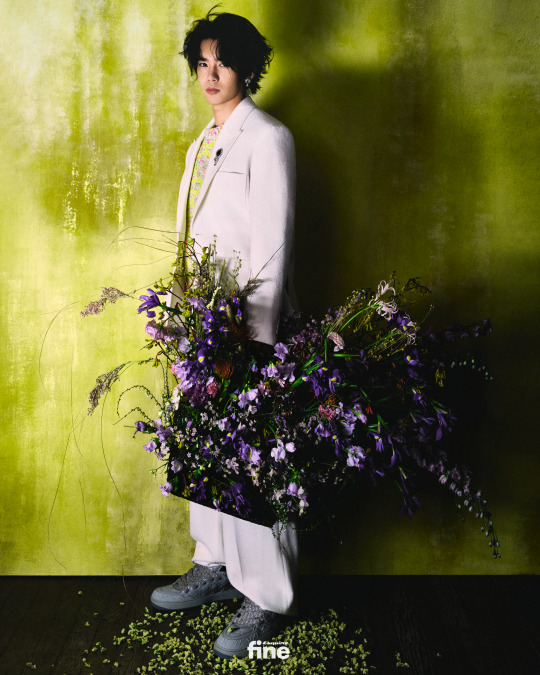
Altay is the sixth region of the East, the days are long and nights are short. The nomads rise at around three to four in the morning every day. When he's not filming, Yu Shi and his nomad friends labor together and drink tea, sometimes in the tents, some times sitting on the plains, every one distributing and eating the naans they brought along. "The nomads are not complex like the people out there, they are more pure-hearted in spirit, and have no agenda when it comes to interacting with people, no distracting thoughts." Yu Shi is good at observing. In his communication with the locals he learnt a fair bit of things and could even practice his Kazakh. "I learnt Kazakh the hard way right from the start, I asked the teacher to translate all the lengthy lines in the show, record them down and listened to it repeatedly, speaking it repeatedly and relied on muscle memory. When I really spoke to the Kazakhs in their environment I realized I was speaking ok, and felt a pretty great sense of satisfaction."
In between the natural world of things and a need of humanities, he has a subtle grasp on its equilibrium. In his past interactions, Yu Shi doesn't hide his yearning for the heroic and their legends. But besides his metanarrative, he was also enamored with the destiny and life of each individual body, attentive to the intricate triviality beyond breathing and sustenance.
Leaving and returning - if the heavens allow, we will meet again
The "Batay" in author Li Juan's original novel was a dream guy who appeared briefly at the village party. He was wonderful but leaned towards plain, an emotional anchor for a young girl's heart. Yu Shi admits "Honestly, I didn't have much of an impression of this character from the original novel. After I received the script and did the related studies, the character was gradually filled and completed in my mind."
Yu Shi arrived early at Altay and after confirming the filming spots he noticed "The Kazakh males don't grow their hair out on purpose and not all minority communities are exceptionally bold." He also came up with premises for his character. "Batay's thinking is a little more avantgarde and rebellious, he likes music and pop elements, so he grows his hair long. He looks to the world outside and doesn't wish to live a typical life on the plains like his predecessors.”
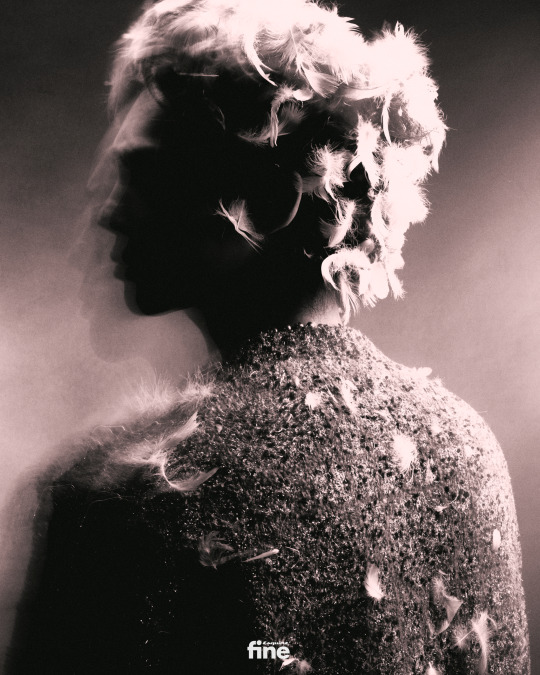
The Kazakh community in history lives by shepherding and hunting. After the implementation of ban on hunting and gun ownership and other policies on environment and nomadic lifestyle, the contrast between the traditional and modern has become more evident than ever. Not only the younger generation of shepherds, even the older generation are lost in the era of change, selling off their livestock and switching to other occupations to make a living just so that they can catch up with the changes.
For Batay's rebellion and departure, the rupture between modern civilization and the shepherding tradition becomes even more evident through him. Yu Shi created the circumstances for Batay, yet this are also the issues that the younger generation of Kazakhs face in reality.
"Besides shepherding tradition, Kazakhs are also very rooted in familial ties. Relationships between people are very tight." Locally, the shepherds hold regular family reunions. During weddings, coming-of-age ceremonies and other celebrations like birthdays, gifts are a must. "They would even gift children lambs and foals." Even if a stranger passes by they host with passion, playing the dombra, eating meat and drinking wine, and are sentimental when it comes to bidding farewell. "If the heavens allow, we will meet again."

"This is the most precious facet of their local culture. The shepherds are really pure and honest, and are straightforward in the way they express their feelings. For example Batay could be looking at someone and laughing as he sings a song on his dombra. A little dazed, straightforward and cute," Yu Shi documents the day-to-day details of life on the plains, all triggered from the warm emotions of the natural winds.
However, the plains aren't exactly true paradise. In the undulating plains beyond Altay, the views are beautiful, the nomadic life seemingly carefree, riding on horses, peaceful and quiet. In fact it is extremely difficult, especially under the harsh winter weather, the shepherd and animals are leading tough lives. More and more younger shepherds wish to detach from the migratory lifestyle and move to the cities to seek their fortune. This is reality.

Yu Shi had keenly sensed this. "The scenery is very beautiful, the experience touring here is great, but this was never utopia. If we had to live here through an extended time, it is in fact boring. The labors that the shepherds have to go through is tremendous, herding is tough work." When he first read Li Juan's book, he found the words healing. However having actually lived in Altay, Yu Shi felt things shouldn't stop at the superficial. "The author wrote beautifully, this is the power of the arts. An excellent work is able to let those who have never been there to be filled with anticipation. But we should also have the thinking and realization of reality beyond what's wonderful."
In June, he returned to participate in the film festival, making good use of the time on the plane to learn Kazakh language. When he touched down and returned to the big city, Yu Shi was dazed for a moment. "People need to feel the power of nature more. When I returned to the city, I felt awed by the vast nature, from the bottom of my heart I kind of yearned for the mountains and waters. More importantly, cherishing it."
Taking root - child-like and also an inherent dexterity to live and grow
The Kazakh people are very respectful towards horses. "Among all the animals of its land, besides the wounded ones, horses nearly never require humans to look after them. They look for their own grass to eat all year round. It knows how to find grass under the layer of snow in winter, and horses love to keep themselves clean, they'll run into the water and roll around.” Sprinting on horseback, Yu Shi has a kind of "feeling of teleporting". "As I close my eyes, the horse could take me anywhere. This is different from driving a vehicle. Horses are really quiet most of the time, but they give off a powerful sound of urgency when they gallop. They're alive, they are living beings. You may hand yourself over to them. It's such a wondrous feeling. As it starts running, I imagine myself as a general in battle in the ancient times, I'd only hear the breathing sound and heartbeat of the horse, and the sound of the fierce winds."
In a press conference for a certain brand, the organizer planned for Yu Shi to enter on a horse. The horse was very tall and was totally unfamiliar with Yu Shi. They only had an hour's time to know each other. Also, the event was livestream. There were a lot of equipment at the set, the strobe lights could startle the horse. Half an hour before the event the trainer was still holding onto its reins at the entrance to prevent an accident. "But I felt it wasn't genuine in that way, it's like I was pretending to ride on a horse and it affected the overall visuals. Since they have invited me here I should bring forth all of my sincerity." After some consideration, Yu Shi suggested to his team "I can do it on my own, don't worry, please trust me." In the end he rode the horse on his own in matching chemistry. The result was wholesome.
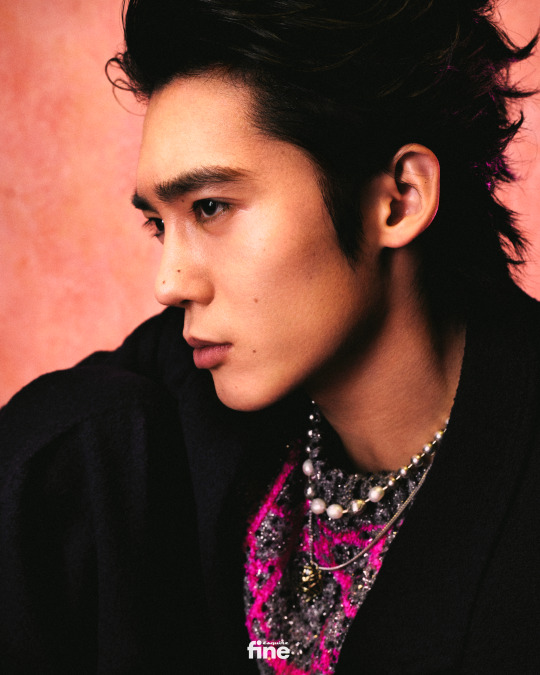
The chemistry with animals and his comprehension of the natural world had come together to create Yu Shi's unique spirit. Having trained in mounted archery in the boot camp, riding horses for an extended time in Altay, shepherding, getting along with camels, cows and the puppies in the ranch, for most of the time he became used to vibing along to a rhythm he calibrates to, finding his own joys in them. He doesn't feel it's childish nor is he afraid of being laughed at. He's just spontaneous in the way he expresses his intimacy.
Last winter solstice, at the 5th Hainan Island International Film Festival's closing ceremony was also Yu Shi's 27th birthday. The hotel he was staying in the couple of days had a special aquarium and offered diving activities. After hearing the introduction his first reaction was "Can I dive then?" On his birthday he went diving in jubilance. In the blue waters, the animals and fauna under the sea was colorful and diverse. Yu Shi interacted with the fishes that swam by and greeted the tourists and people watching from outside the glass, making various fun poses.
An expression of a pure and clear soul. Both child-like and a dexterity to live and grow, as if he could take root no matter where he went. Also, what's precious about Yu Shi- is that such a vivid facet isn't just towards nature and humans, but also towards the people he interacts with.

"He hasn't actually formed a routine work condition. For example at interviews, he speaks to writers like a personal friend, speaking honestly, just like how he would chat in his daily life, there's no framework of limitations." His staff was once worried, such an honest and straightforward manner would be potentially problematic, but after wards decided to retain his vivid side of him & not interfere too much with his individual expressiveness.There are many who had interacted with Yu Shi that are moved by his unguarded sincerity. At the same time they can't help but be curious: How long would such scarce uniqueness remain under the spotlight? As his experiences increase, would an armor be built upon his inherent sincerity and evolve into something impenetrable?The magazine photoshoot took place in an old house in Shanghai. Perhaps the wiring was old and couldn't support sufficient current, there was a short circuit when the team had just arrived. The house was pitch black and was only lit by torchlight. The place was too narrow, props and clothes piled up and there was no walking space, so the people who had no duties at that time were squashed along the aisle or sat on bar stools. A couple of steps away, Yu Shi was curled up in a low and small couch, getting his hairstyle adjusted as he chatted and laughed with everyone.

At that time the video director prepared a pillow for him, with the seams removed and feathers would fly when pressed. As the music began, Yu Shi twirled holding the pillow above his head, danced, and the feathers danced around too, the lights hazy. When the music ended, he turned his head and paused- everyone's coats and down jackets didn't go unscathed, everyone's hair had feathers in them and were laughing at each other. Yu Shi carefully rolled up the withered prop, placed it neatly and laughed as well. "Sorry, sorry, I killed a pillow."
His humor triggered off something. As he looked at the feathers on his hair, Yu Shi got inspired and suggested to the photographer "how about we try a few photos like this?" The photographer smiled and gave an ok sign and he posed immediately. Everyone enthusiastically matched up to his moment of inspiration, scooped the runaway feathers and created an atmosphere of rainfall. Very quickly, the cover image of his single 《梦幻泡影 Pipedream》 was born.
In the eyes of the crew, "Yu Shi isn't the kind to wait for things to come his way, he's good at igniting the passion in the team. It isn't a linear way of everyone carrying out their duties but injecting a lot of thoughts and inspiration from coming together." But in private, he's a sincere and interesting friend who takes care and understands others.
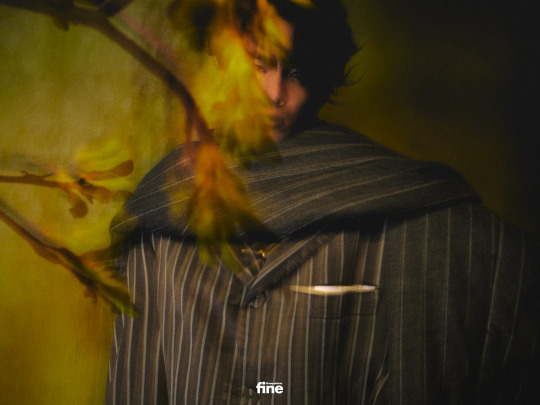
After the shoot that day, we made space to have a room for the interview. "This won't do," Yu Shi felt that the bar stools that were prepared wasn't convenient to relax and converse. He surveyed his surroundings and nudged the only chair available over. "Why don't you sit here." But there were no other chairs, so he sat on top a small coffee table. Not long after, he shifted a bar stool over and gestured "you can put all the recording stuff here."
The last time I saw Yu Shi was in Beijing. It was snowing. Filming took place from noon till nine at night, and it was nearly eleven when the interview was over. As I stood to bid farewell, I was shocked to discover that his teammates were all seated on the floor- there was actually a couch and chairs in the make-up room. Everyone was doing their own thing, huddled together talking softly, breaking into laughing from time to time. None of them felt it was problematic to sit on the floor, and they all looked really joyful.
Gift - having repeatedly tasted the bitter medicine, and so the gift from destiny had arrived
At Weibo Night, Yu Shi posted a group of photos which appeared to be him cutting his hair short at the mirror. At first the make-up artist specially prepared a wig and was making preparations to style him. But at the photoshoot, Yu Shi suggested to "try something different." He also picked a special present that day, Director Cao Baoping's "precious jar" (T/N: precious jar is also pronounced bao ping, a reference to the director's name)
His popularity expanded as the year draws to a close. Various schedules, including his birthday at the end of the year, Yu Shi received many blessings and gifts. Needless to say, he was joyful. What was most delightfully surprising is the love and support from his family. Crossing nearly half of China by flight, his parents had arrived specially to spend his birthday with him and watched his Hainan rehearsals and hosting debut. One week later on Shanghai's countdown stage, Yu Shi descended on wireworks, announcing his new movie role and even sang two songs. Also in the crowd clapping and cheering below the stage was his mother.
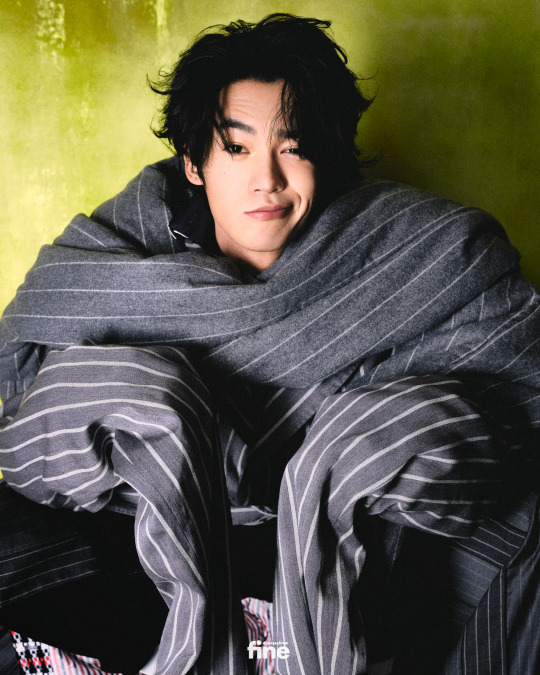
When the countdown ceremony ended, Yu Shi returned to Tsingdao for additional filming of 《封神 Creation of the Gods》. Nearly all of them were night scenes, his days and night went topsy turvy. He was used to playing the guitar, reading and writing at night, sometimes even worried about too much brain stimulation at night. "When I can't fall asleep it affects me, I have work the next day. I play videos about the universe at night and listen to Professor Ai's lectures (T/N: Ai Yue Jin, a Marxist and Maoism academia). Anyway I gradually get sleepy as I tune in." And now it's the other way around, major night scenes every day, heading back to sleep as the skies start to turn bright. In between the busyness and exhaustion he found stability.
Too many dreams were fulfilled in the past year. Returning to 《封神 Creation of the Gods》 production at the start of the year, it was as if a loop was formed. On the keywords of 2023, Yu Shi went silent for a long while. "Very complicated. There's a lot of things that touched me. A mixed bag of feelings."
When he was young a birthday gift that left the deepest impression was a basketball jersey. This year, as he pushed open the door after a day's work, was a dazzling sight. During his teenage years in the basketball team "I was facing setbacks almost every day, but the high pressure environment had made me more determined, I was just able to ensure through it all." He honestly expresses all his emotions and desires. In the past days of waiting, his earphones played many Liang Bo and Wu Bai songs, he feels that getting a sense of satisfaction from doing the things he likes is the best condition to be in. That's what music should be too. "When I was young my grandfather taught me to play the er hu, the flute, he really liked traditional music, but I was poor in both of them. It was until later that I learnt the guitar on my own. He gained satisfaction and has now released his own song.

His rich memories had evidently created the foundation of his personality. In the love wrapped in gentleness that he had received and the sharp piercing grueling training he had undergone, he grew into adulthood. Having repeatedly tasted the bitter medicine, and so the gift from destiny had arrived.
Many dramatic moments happened. From his perspective, the period of waiting was also a gift, the layering of experiences was injected into his life, becoming his observation of art, life and people. In the period of March and April last year, Yu Shi was still reading on his bicycle in Beijing, stopping as he wished, watching the congestion of people and traffic. "The weather was really wonderful, no haze, the sun was shining on the people passing by, really bright, there were also little dust particles moving in the air. You don't know their names and what these people had experienced, but the sun was warm. If you smile, someone would be smiling back at you. Every time this happens, I feel like I love this world a little more."
As work entered into rapid mode, such experiences became lesser. Yu Shi remained nimble, keeping that vivid and pure part of him. The day when movie 《星愿 WISH》 premiered, he received a small Valentino (T/N: Yu Shi voiced the character of Valentino) plushy. He couldn't keep his hands off it, bringing it wherever he went the entire day, even placing it on the table when at dinnertime. During that time he was working round the close and had lack of sleep. When the fireworks started, Yu Shi fell asleep as he took a nap on the couch hugging Valentino.

His nap was documented through behind the scenes recording by his team. He had almost no recollection of it, but he was feeling mostly happy that day. After wards, he detailed another nap time he had, where he had a strange dream. "I was rather tired that day and fell asleep in a daze as soon as I laid down when I returned to the hotel. Then I dreamt that my mobile phone was glowing, and many pictures flowed out of it, a bearded old man stood there and said these things are for you. I looked down and those pictures were marked onto my hand like tattoos, the markings wouldn't budge," he said and laughed, gesturing. "How sturdy were the markings? How should I put it? Let me think, ah yes, like the branding on pork meat."- the people around couldn't help but laugh.
"Did you have any other impression at that time?" I asked.
"I forgot, but I remember I was really happy, and the person in the dream looked really benevolent," Yu Shi kept laughing. "I suppose it was a blessing."
#YuShi#于适#YoshYu#于适Yosh#Interviews#Esquire#Creation of the Gods#FengShen#封神#我的阿勒泰#January#January 2024
10 notes
·
View notes
Text
Xinjiang: China's Muslim Borderland, S. Frederick Starr. (Not sure if there's much useful here.)
The Russians in Central Asia : their occupation of the Kirghiz steppe and the line of the Syr-Daria : their political relations with Khiva, Bokhara, and Kokan : also descriptions of Chinese Turkestan and Dzungaria, Valikhanov, Ch. Ch.; Michell, John,Michell, Robert; Venyukov M.I. (second hand source babyyyy)
Music and the Play of Power in the Middle East, North Africa and Central Asia, Laundan Nooshin (not sure how useful, but worth investigating, even just to give musical flavor)
Central Asia and Caucasus, Journal of Social and Political Studies (might be the wrong era, we'll see)
Ferghana Valley: The Heart of Central Asia, Frederick S. Starr, Frederick S. Starr, Baktybek Beshimov, Inomjon I. Bobokulov, Pulat Shozimov (i want intro, chapter 1, 2, 3)
Islam after Communism: Religion and Politics in Central Asia, Adeeb Khalid (This author again! The book I read was wonderful. I don't know how useful this will be, but it talks about insights from the study of Islam and Soviet history, so I'll check it out)
Central Asia Reader: The Rediscovery of History, H.B. Paksoy (only parts 1 and 2 are of interest, and I'm not convinced they will be useful)
4 notes
·
View notes
Text
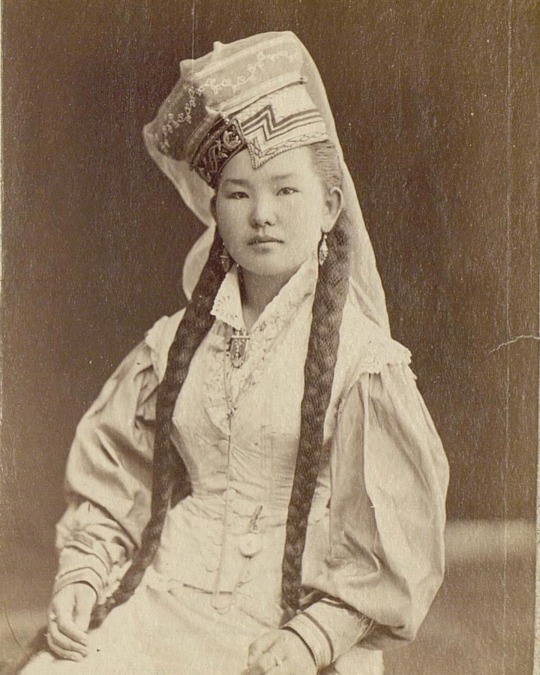
"Juan y paty 2" fb wrote: Kalmyk people are a Mongolic ethnic group living mainly in Russia, whose ancestors migrated from Dzungaria.
From Wikipedia: Kalmyks are the only Mongolic-speaking people living in Europe, residing in the easternmost part of the European Plain. This dry steppe area, west of the lower Volga River, known among the nomads as Itil/Idjil, basin on the Northwest shore of the Caspian Sea was the most suitable land for nomadic pastures. Itil or Idjil, the ancient name of the Volga River, written in the archaic Oirat script means exactly that, the "pastures" (Oirat-Kalmyk dictionary, 1977).
The ancestors of Kalmyks were nomadic groups of Oirat-speaking people, who migrated from Western Mongolia to Eastern Europe three times: in early medieval times, establishing in the 6th-8th century the Avar-Rouran Khanate; in medieval times, establishing the Ulus of Juchi and Il-Kanate as Khuda-in-laws of Chiggis Khan (Juvaini A-M. Genghis Khan: the history of the world conqueror. Manchester, UK: Manchester Univ. Press; 1997), and finally, in early modern times, establishing the Kalmyk Khanate in the 17th century.
0 notes
Photo
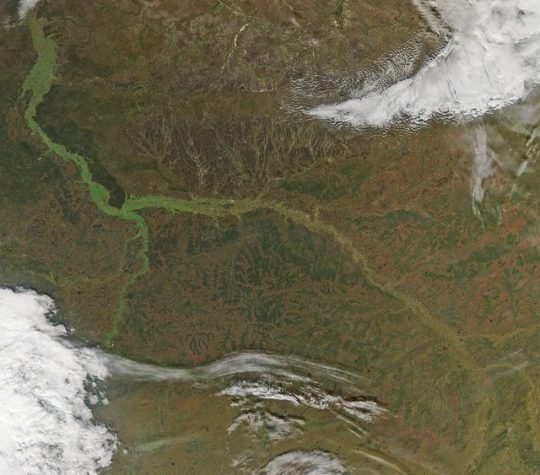
The Ob River Valley in Siberia (September 2016).
The Ob River, westernmost of the three great Siberian rivers, begins in the Altai Mountains, and flows north and west for over 4000km, ending in the Kara Sea.The environmentally rich river valley includes forests, meadows, wetlands and agricultural land. Broad floodplains lying next to the river are particularly rich, but often flooded when the winter's snow and ice melts each year. Over 170 species of birds nest in the floodplains, and about 50 species of fish live can be found in the river, including several species of sturgeon.
The largest tributary to the Ob River is the Irtysh River, which flows southwards from the Mongolian Altai Mountains in Xinjiang (China) to meet the Ob at the town of Khanty-Mansiysk. The Ob-Irtysh river system forms a large drainage basin in Asia, encompassing most of Western Siberia and the Altai Mountains.
#geography#potamology#rivers#russia#china#mongolia#siberia#khanty-mansi autonomous okrug#xinjiang#dzungaria#khanty-mansiysk#ob river#irtysh river#altai mountains
6 notes
·
View notes
Text
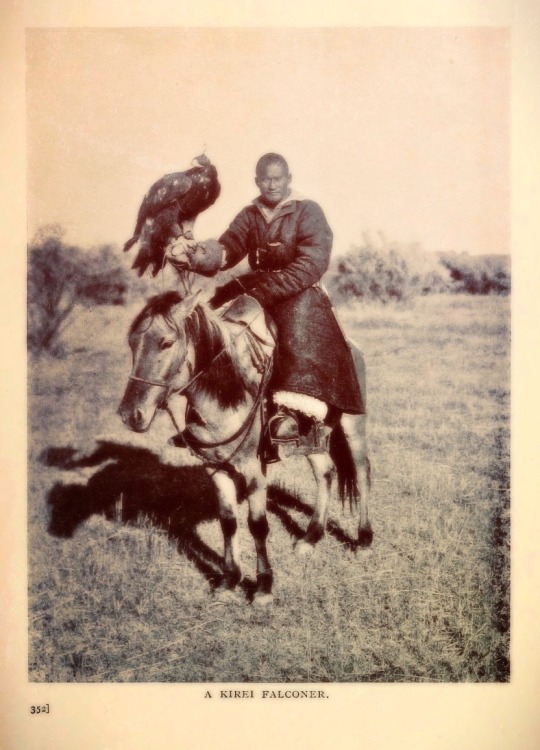
A Kirei falconer.
Unknown Mongolia; a record of travel and exploration in north-west Mongolia and Dzungaria
Alexander D.M. Carruthers & Jack Humphrey Miller London: Hutchinson & Co., 1914.
100 notes
·
View notes
Text
I have some thoughts to make Dzungaria OC but I also pity him so hard lmao;; like dude was the most hated Mongol ever. But dude also caused hell to Kaz and Uz ewwwwwwww
2 notes
·
View notes
Text
Guanlong wucaii
('crown dragon, multicoloured/five-coloured')
Tyrannosauroidea Proceratosauridae*
The 'multicoloured' or 'five-coloured' of the species name refers to the rainbow rocks the two specimens were found in, stacked one atop t'other, with some other little animals thrown in--even another proceratosaurid, Dilong paradoxus. All these animals were literally squished and drowned inside the big chowder pot of a giant sauropod footprint. Tragic event for them = really cool fossil for us.
Shishugou Formation, Dzungaria, Xinjiang, China.
Upper Jurassic, ~160 Ma.
*Proceratosaurids were once thought to be ancestral to ceratosaurs; now understood to be tyrannosauroids
~
Artwork by Gabriel Ugueto.

Daily Dino Fact #45
8 notes
·
View notes
Text
Anyhow I gotta say, there is a certain richness to people calling Xinjiang Chinese Turkestan (I'm learning it's one of the most interesting places in the world history-wise) when the northern half where most people live is still called Dzungaria to this day, the Dzungars being a Mongol tribe who were nearly wiped out by a confederation of Manchu, Han, and Uyghur bannermen in the Dzungar Genocide of the Qing dynasty, and the Tarim Basin (the southern half) originally being first settled by Indo-Europeans (speakers of the Tocharian languages, including interestingly the person who produced the most influential translations of the Buddhist canon into classical Chinese during the Tang dynasty, Kumarajiva, who was born in the Tocharian city-state of Kucha)
5 notes
·
View notes
Photo
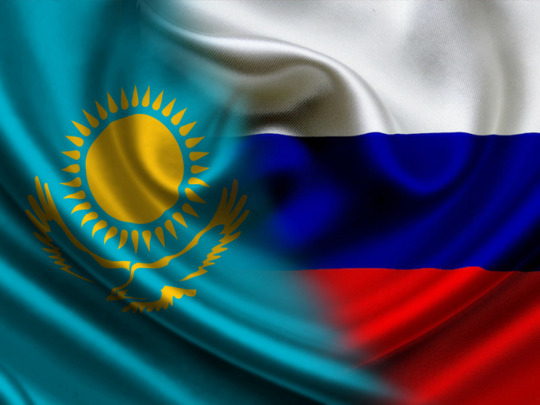
How Russia saved the Kazakh Khanate from destruction. In 1742, a special embassy headed by Major K. Miller was sent to Dzungaria from Orenburg. And the Russian government officially demanded that the Khan of Dzungaria, Galdan-Tseren, stop attacking the Kazakhs of the Younger and Middle Zhuzs, as they had accepted Russian citizenship, to which there is evidence not only in Russia, but also in China. After that, the Dzungars released from captivity 35 Kazakh sultans and other notable people, including the sultan, in the future since 1771 — Khan) Ablai. In the future, it was with Ablay that Galdan-Tseren signed a peace agreement in the future. However, in the same 1742, Galdan-Tseren began to convince the Kazakhs not only to pay tribute to the Dzungars, but also, having refused Russian citizenship, "to go under his hand". The Dzungarian Khan promised to give the Kazakhs the cities and oases along the Syr-Darya River, including the ancient capital of the Kazakhs, Turkestan. The Dzungarian envoys urged them to renounce their Russian citizenship and start a war against Russia together with the Dzungars.
In a letter to Khan Abulkhair, Galdan-Tseren wrote that " it is in vain that he, the khan, entered into Russian citizenship, for the Russian people are ploughing and they only look to build tokmo cities and bring the Kirghiz people to such ruin as the Lower Kalmyks and Bashkirs are brought." In the middle Zhuz Dzungar after saying nimanska Sultan Barak: "de Russian people, they tengizov Irtysh, and you de take away, Atomically captured... and then de is already come soon here will leave that to another of their place will not be, and tacos de what you think, and we'll postupim and that they are de in the Irtysh river was built, the de zbivat all will... or the current winter or next spring" .Barak was promised to give several cities into his possession, "including his father's city named Inak (where his father Tursunrkhan ruled), so that he could be his subject." An authoritative batyr in the Steppe, Janybek Huntaiji, promised to introduce him into his government and "make a noble man in his land".In the spring of 1742, the assembly of the nobility of the Younger Zhuz decided to recognize the citizenship of the Dzungarian Khan. This was supported by many sultans and foremen of the Middle Zhuz. And the khan of the Middle Zhuz Abulmambet, the sultans Ablay, Abulfeiz, Niyaz and many others sent their hostages to Dzungaria. It is quite obvious that after their penetration into the Trans — Urals and Siberia (you can call it whatever you want-even if it is annexation, even colonization, the essence of the matter will not change from this), the Russians faced two powerful rivals — Qing China and Dzungaria. The Kazakh Khanate, in terms of its capabilities and resources, in the event of its joining one of the enemies of the Russian Empire — Dzungaria, could significantly strengthen it. And, of course, the Russians could not allow it. But if the Dzungars, trying to gain power over the Kazakhs, killed them without restraint, then the Russians, according to well-known historical sources, preferred to gain the favor of the Zhuzs by peaceful means.
As for Russia's so-called "assistance" in arming Dzungaria, there are many questions here. It is known that the production of guns in Dzungaria was mainly engaged in Russian prisoners or runaway craftsmen from the famous Demidov factories. There is not a single historical document that somehow records the negotiations between the Russian Empire and Dzungaria over its assistance to the Dzungars in the development of the weapons business. Moreover, Russia constantly demanded that the Dzungars issue fugitive masters.One can, of course, assume that such negotiations and even actions were in reality, and the Russians then destroyed all the sources, but this will no longer be a story, but a wild fantasy. The historian can and should be guided only by objective facts.For now, the facts remain the same: Kazakhs and Russians have lived together for centuries, mutually enriching their cultures. There are a lot of mixed marriages, many Russians live in Kazakhstan, and Kazakhs-in Russia. And it is criminal to sow historical hatred between our peoples after so many years of joint history. Oirats were forest Mongols who lived in the mountain-taiga regions of the Baikal region, the Upper Yenisei, in the Sayan region and the Angara region. In the Chinese chronicles they appear under the name of elet or olet, the Muslim peoples were known as Kalmaks, the Russians-Kalmyks. The ethnonym Dzungars (junary) appeared during the time of Genghis Khan, whose power over the Oirat admitted voluntarily.
3 notes
·
View notes
Text
*sigh*
Traitors and incompetents.
Well, at least the soon-to-be destruction of West Dzungaria and the betrayal by East Dzungaria will leave open spaces for Hubei to join, and maybe Guangdong as well. The question is, will I survive long enough for Shanxi to actually deploy his forces against Ordos, or is his plan to let me capitulate so he can swipe some land after Ordos has totally worn himself out? Do these players realize these kinds of betrayals lead to the dissolution of the coalition, leading to the loss of all coalition members to the forces of unified coalitions?
Geez, I know it’s a realist game, but they could at least be neo-realist about this and see what’s in their long-term national interests as opposed to the short-term.
3 notes
·
View notes
Photo
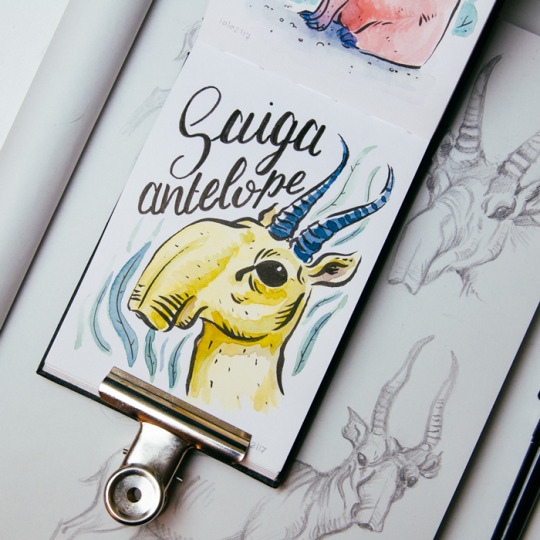
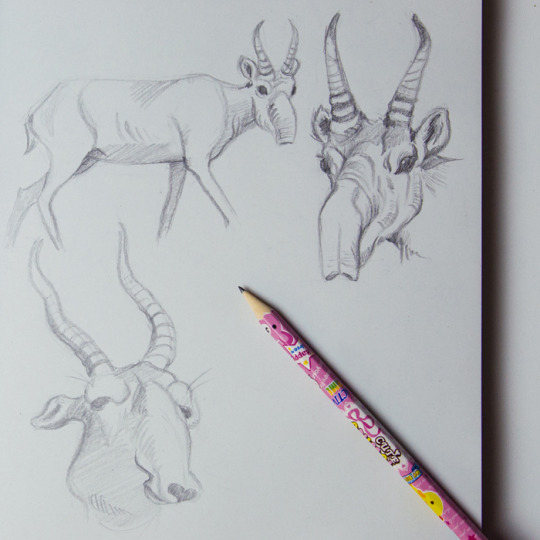
Day 194 - The saiga antelope (/ˈsaɪɡə/, Saiga tatarica) is a critically endangered antelope that originally inhabited a vast area of the Eurasian steppe zone from the foothills of the Carpathian Mountains and Caucasus into Dzungaria and Mongolia. - Watercolor
#saiga#antelope#dailysketch#sketchdaily#sketchbook#pencil#drawing#sketch#sketchaday#watercolor#animal#illustration
7 notes
·
View notes
Photo

East Asia during the early Ming dynasty (Yongle Emperor's reign) - Oirats in Dzungaria, Eastern Mongols, Chagatai Khanate, Korea, Japan [850×567] CLICK HERE FOR MORE MAPS!
2 notes
·
View notes
Text
Abraxas grossulariata
Abraxas grossulariata
Abraxas grossulariata is a moth of the family Geometridae, native to the Palaearctic ecozone and North America. Its distinctive speckled coloration has given it a common name of magpie moth. The caterpillar is similarly colored to the adult and may be found as a pest feeding on the leaves of shrubs such as gooseberry.
larva
The length of the forewing is 18–25 mm. The strikingly patterned forewings have a white ground color, with six transverse series of black stains, partly associated with a pale yellow basal cross-band and another through the central area of the forewing. The hind wings are paler and have much less dark stains on them, and these are also small. It is a highly variable species with many different forms. Research using Abraxas grossulariata led to the discovery of sex-linked characters.
Subspecies
Abraxas grossulariata grossulariata Abraxas grossulariata karafutonis Matsumura, 1925 (Sakhalin) Abraxas grossulariata conspurcata Butler, 1878 (Japan) Abraxas grossulariata dsungarica Wehrli, 1939 (Dzungaria) Recorded foodplants Ribes rubrum Ribes nigrum Prunus spinosa Crataegus Corylus Euonymus europaeus Salix source - Wikipedia Dear friends, if you liked our post, please do not forget to share and comment like this. If you want to share your information with us, please send us your post with your name and photo at [email protected]. We will publish your post with your name and photo. thanks for joining us www.rbbox.in
from Blogger https://ift.tt/2HhxPq7
0 notes